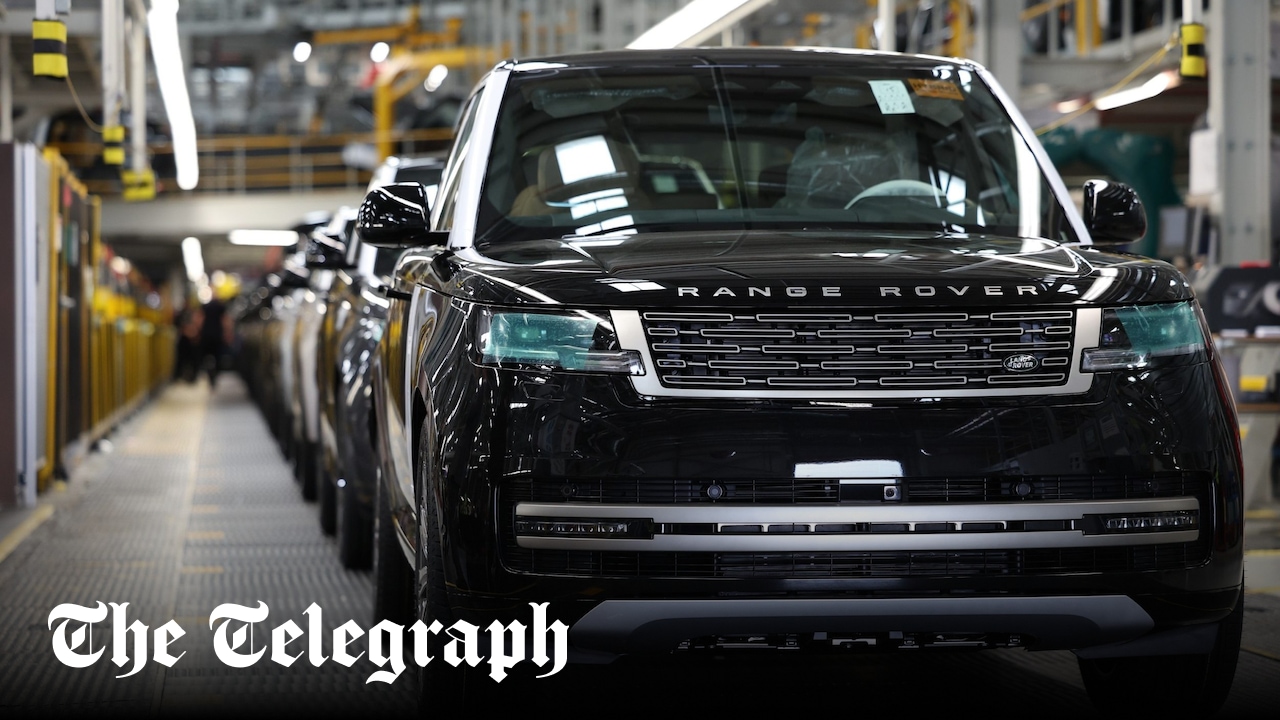Where do you stand if you ordered a new Land Rover, or booked yours for a repair? Our consumer expert explains all
Copy link
twitter
facebook
whatsapp
email
Copy link
twitter
facebook
whatsapp
email
Copy link
twitter
facebook
whatsapp
email
Copy link
twitter
facebook
whatsapp
email
The country’s largest car maker, Jaguar Land Rover (JLR), being hit by a cyber attack in early September will have come as a nasty shock to many – none more so than its customers.
Details of the attack remain scarce, but the incident was serious enough to warrant the shutting down of production at JLR’s plants, which has had a huge knock-on effect for the company’s suppliers.
Modern automotive production operates on a principle called “just in time manufacturing”; the parts for each car are delivered to the production line just before the car itself is assembled.
This system can save on the costs of storage and weed out waste due to overproduction. The process relies heavily on closely aligned IT systems that monitor which parts are being used, so replacements can be ordered at the right time.
The problem with this system comes when a link in the chain breaks. In this instance, that link has been at the top of the chain – JLR itself.
When JLR shut down production, its suppliers couldn’t simply keep churning out parts, they too had to pause production. And with no parts being produced, there was nothing to charge JLR for, hence no money coming in.
The Government agreed to a £1.5bn loan guarantee to JLR, with the express aim that this sum filter through to the supply chain to help protect the company’s suppliers while its outage continues.
The situation is affecting customers in two ways. Firstly, and most obviously, there are buyers of JLR products – only Land Rovers at the moment, as no Jaguars are currently being produced – whose cars will inevitably end up being delayed.
Secondly, existing customers who have booked routine services; dealers have had to postpone some repairs due to the lack of availability of certain parts.
New vehicles were still being delivered to dealers until recently. While sales administrators were having to register those vehicles by telephone with the DVLA, deliveries to customers continued.
However, inevitably, the pause in production will lead to delays for some buyers whose cars have not yet been built.
Dealers rarely commit to an exact delivery date on a new car, partly because production and logistical delays are not unheard of.
As a result, it’s rare to have a pre-sale contract which includes, in writing, a hard-and-fast delivery date. Such a thing would only normally exist if the buyer had made delivery by that date a condition of the sale.
What you may have is a contract that specifies that delivery will be guaranteed within a certain number of days of an expected delivery date. Usually, this allows a fairly hefty amount of leeway (90 days, for example), so it’s unlikely to apply unless things have gone very wrong at JLR.
But if it were to get to that point, you would be within your rights to ask for compensation, especially if you had to pay for alternative transport in the meantime, or to cancel the contract entirely.
Think carefully before doing so; you would almost certainly be faced with a new, potentially longer, waiting time on whichever alternative vehicle you decided to order, unless you could locate one from stock or buy second-hand.
If you haven’t reached the end of the lengthy grace period specified in the contract yet, or the dealer isn’t tied into delivering the vehicle by a particular date at all, you have no rights to compel the dealer to deliver the car by a particular date. (Indeed, it would be impossible to do so if the car hadn’t been produced yet).
That said, some dealers will listen to requests to cancel an order and refund the deposit if it is already overdue with no imminent delivery in sight, so it’s worth having that conversation with them regardless.
If you plan to part-exchange your car, you should have a pre-agreed value for that part-exchange. If that’s written into your sales contract, your dealer is obliged to honour that value, no matter how late your new car turns up – even if your part exchange is by then worth far less than the dealer agreed initially.
There’s not much you – or anyone else, for that matter – can do. JLR is getting its parts distribution network back online and some parts are available, so repairs are starting to be booked in once again. But if a part isn’t available, not much can be done to make it so.
“But there are soon going to be enough parts to be building new cars,” you might think. And that’s true – but having just paused final assembly, JLR’s suppliers will take a while to get going too.
And due to the nature of just-in-time automotive manufacturers, those suppliers aren’t easily able to increase their rate of production over and above that required for the supply of parts for manufacturing and aftersales at “normal” levels.
This all comes off the back of the global parts shortage that resulted from the Covid-19 pandemic, from which some manufacturers are still trying to catch up. Indeed, this cyber attack will have set that recovery back further for JLR.
Inevitably, that means parts will be fitted as they become available – but it will take a while to clear the backlog and owners will simply have to wait their turn.
Recommended
Copy link
twitter
facebook
whatsapp
email











